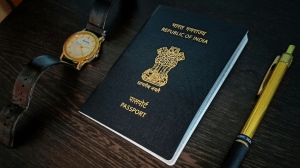Meenakshi Meyyappan, or achi (elder sister) as she is fondly called, has a deep-seated commitment to her Chettiar roots. An authority on her cuisine, she is the custodian of her family recipes handed down through generations and strives to popularise the cuisine. The 89-year-old founder of The Bangala, a heritage boutique hotel in Karaikudi, Tamil Nadu, recently collaborated with Hosa, Goa, for a three-day lunch and dinner pop-up to showcase the cuisine of the Chettiars.
Q: A complex, distinctive cuisine that is rooted in Tamil Nadu but is reminiscent of foreign shores—that is how Chettinad cuisine is described. Could you throw light on some of the influences—ingredients, cooking techniques, etc—on this cuisine and what are the dishes that emerged as a result?
In the years gone by, when the Chettiars travelled to South and Southeast Asia, they took with them cooks, who over the years incorporated various ingredients and spices of those regions into their cuisine. The black rice we serve at The Bangala in the form of a dessert, a payasam (kheer) and a halwa, is one of the most significant imports from these countries. Other culinary items used in Chettinad cuisine, as a result of foreign influences, are the various spices grown and used in those regions—star anise, cinnamon, pepper and cloves, which got added to the already existing repertoire of spices like coriander seeds, cumin and red chillies.
Q: Chicken Chettinad, a popular dish across India, is apparently not even a traditional dish of the Chettiars. Could you tell us a little more about how this dish got associated with this cuisine?
Chicken dishes were originally made with red chillies and coriander masala. With the advent of pepper in Chettinad cuisine, the latter was added to the masala to create the famous Chettinad Pepper Chicken. This dish gained immense popularity and somewhere along the line, based on its peppery flavours, small restaurants christened it Chicken Chettinad and the name has erroneously stuck.
Q: Chettinad cuisine was originally supposed to be vegetarian and gradually evolved to include non-vegetarian dishes. Are vegetarian dishes still predominant, given that many people are turning to vegetarianism today?
Vegetarian dishes still remain the mainstay of Chettinad cuisine, as Chettiars were originally vegetarians from the ancient port town of Kaveripoompattinam. Non-vegetarian items are not eaten on a daily basis. Many days in a week and during certain festivals and in festival months, no non-vegetarian item is served at all. Popular vegetarian dishes include pepper curry, pineapple rasam, banana flower ketti kuzhambu and brussel sprouts kurma.
Q: The Bangala is internationally recognised as a place to learn Chettinad cuisine. How does that make you feel? How popular are these classes?
It makes The Bangala very proud indeed, to be able to impart the nuances of Chettinad cuisine to chefs from across the world. These chefs come to us to learn a cuisine that was little known a decade ago, but is now becoming popular. Our culinary courses have become extremely popular, especially with the Japanese.
Q: Have you ever been tempted to include modern twists in your food offerings, or altered recipes for low oil, salt, spices, etc, to cater to modern-day trends?
No. The Bangala is renowned for its family kitchen, and is the ultimate destination for authentic Chettinad cuisine, with recipes that have been handed down from generation to generation. We prefer to adhere to the traditional and authentic way of preparing food, as was done in our grandmothers’ kitchens. I would never think of adding a modern twist.







